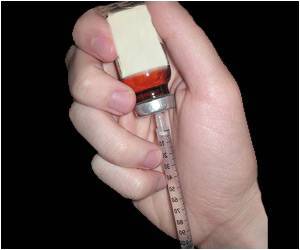...alcoholism can be effectively treated by a single dose of the hallucinogenic drug LSD, administered in a clinical, nurturing environment.
Some interesting details about a group of pioneering psychiatrists who worked in Saskatchewan, Canada in the 1950s and 60s have been unraveled by Dr. Erika Dyck, who is working on it for the last 5 years.
Dyck, the history of medicine professor at the University of Alberta, sited records of the psychiatrists' research, according to which, alcoholism can be effectively treated by a single dose of the hallucinogenic drug LSD, administered in a clinical, nurturing environment.Her findings are published this month in the journal Social History of Medicine.After perceiving similarities in the experiences of people on LSD and people going through delirium tremens, the psychiatrists undertook a series of experiments. They noted that delirium tremens, also know as DTs, often marked a "rock bottom" or turning point in the behavior of alcoholics, and they felt LSD may be able to trigger such a turnaround without engendering the painful physical effects associated with DTs.
As it turns out, they were largely correct. "The LSD somehow gave these people experiences that psychologically took them outside of themselves and allowed them to see their own unhealthy behavior more objectively, and then determine to change it," said Dyck, who read the researchers' published and private papers and recently interviewed some of the patients involved in the original studies--many of whom had not had a sip of alcohol since their single LSD experience 40 years earlier.
According to one study conducted in 1962, 65 per cent of the alcoholics in the experiment stopped drinking for at least a year-and-a-half (the duration of the study) after taking one dose of LSD. The controlled trial also concluded that less than 25 per cent of alcoholics quit drinking for the same period after receiving group therapy, and less than 12 per cent quit in response to traditional psychotherapy techniques commonly used at that time.
Published in the Quarterly Journal for Studies on Alcohol, the 1962 study was received with much skepticism. One research group in Toronto tried to replicate the results of the study, but wanted to observe the effect of LSD on the patients in isolation, so they blindfolded or tied up the patients before giving them the drug. Under such circumstances, the Toronto researchers determined LSD was not effective in treating alcoholism.
The Saskatchewan group argued that the drug needed to be provided in a nurturing environment to be effective. However, the Toronto researchers held more credibility than the Saskatchewan researchers--who were led by a controversial, British psychiatrist, Dr. Humphry Osmond--and the Saskatchewan group's research was essentially buried.
Advertisement
In spite of the promise LSD showed as psychotherapy tool, its subsequent popularity as a street drug, and the perception of it as a threat to public safety, triggered a worldwide ban in the late 1960s--including its use in medical experiments. However, the ban on its use in medical experiments appears to be lifting, Dyck noted. A few groups of researchers in the U.S., including a team at Harvard, have recently been granted permission to conduct experiments with LSD.
Source-Eurekalert
GYT








